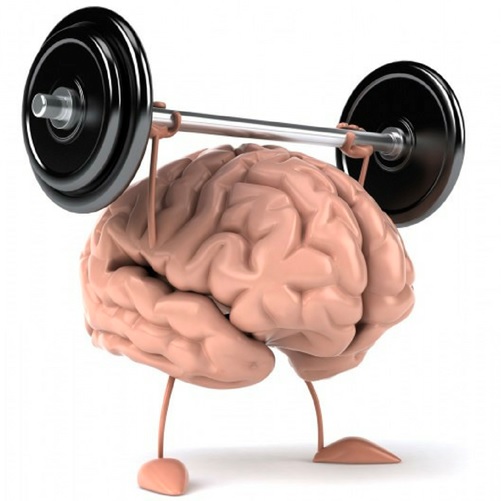
You might have heard some gym bros or personal trainers talk about “mind muscle connection” but what does this mean? Advocates of using this technique say that concentrating on the muscle you are trying to work improves activation and may result in better gains. Is this really true? Keep reading to learn more about mind muscle connection and whether you should be focusing on it during your training sessions.

Internal vs External Cues
Mind muscle connection refers to when a lifter focuses their mind on contracting a muscle as hard as they can. When performing an exercise, you might either focus on how a particular muscle feels (internal cues) or on the environment around you (external cues). Examples of an internal cues would be
- “clench your butt cheeks”
- “pinch your shoulder blades together”
- “activate your lats”
- “squeeze your triceps”.

In contrast, external cues would be
- “push the floor away”
- “break the bar”
- “touch the sky”.
Rather than thinking about whether a specific muscle is feeling tension, external cues get you to think about the environment and equipment around you.
Why Does This Matter?
What you think about when performing an exercise can affect your execution of the movement. Whether you should think about an internal or external cue will depend on what you are trying to achieve. If your goal is to grow your chest doing a bench press but you only feel your shoulders and arms, then that exercise may not be very beneficial to your pec development goals. However, if you just want to be able to smash out a really heavy bench press, then worrying about specific muscle contractions might be a waste of time. Before you do a movement at the gym, ask yourself “what am I trying to achieve?”. If the answer is strength gains then external cues may be your new best friend. However if you are trying to create as much tension as possible in a specific muscle, then it can help to focus primarily on that.
Benefits of Focusing on Mind Muscle Connection
Research suggests there are plenty of benefits to thinking about internal cues when lifting, especially if your goal is hypertrophy (aka the growth of muscle cells). In order to build more muscle, we need to damage the muscle fibres through resistance training. As they say “no pain, no gain”. You need to damage your muscles and then let them recover in order to see an increase in size.
Studies show that those who are told to think about their tricep muscles while bench pressing will experience a noticeable increase in tricep activation. The same is true for other muscles like abdominals. Bodybuilders who regularly focus on abdominal training are able to activate their core muscles better than other athletes. This explains why mind muscle connection is a popular point of discussion in bodybuilding circles. Athletes who have body composition goals are more concerned with growing particular muscles than overall strength. Since their focus is the development of specific areas on their body, it makes sense that they prioritise activation of the correct muscles over anything else.
Drawbacks of Mind Muscle Connection
Mind muscle connection is a tool. Like any other tool, it can be very functional in one setting and completely inappropriate in another. Focusing excessively on internal cues can actually hinder you when doing moves that require a lot of force production. This is why powerlifters and olympic lifters care more about external cues like “push the bar through the roof”. It doesn’t matter that your biceps were active during a deadlift if you didn’t even lift the bar off the ground.
If you want to get stronger and lift heavier loads then it pays to think outside the bod. Studies show that powerlifters who focus on external cues lift more efficiently and effortlessly. For people with strength or functional fitness goals, the mind muscle connection can actually be detrimental. This shows that you shouldn’t always believe the trainer who harps on about mind muscle connection. Doing so could actually limit the amount of weight you’re able to move.
When Should I Focus on Mind Muscle Connection?
An internal focus is very appropriate in certain situations but not in others. Those worried about improving specific muscles should consider mind muscle connection. This includes bodybuilders, anyone with aesthetic goals and those recovering from injury. Focusing on a specific muscle contraction can be very helpful for someone who just had ACL surgery trying to regain strength in their quadriceps. However someone testing their one rep max deadlift would be better off thinking about getting the bar off the ground.
It might be better to save mind muscle connection for your lighter accessory movements like bicep curls and lateral raises. Excessive focus on internal cues during compound lifts like squats can lead you to mistake the forest from the trees. We don’t want to major in the minors and focus on the smaller muscle groups when doing more complex movements. For simple exercises like a tricep pulldown, it can be hugely beneficial to think about contracting that muscle as hard as you possibly can. This will increase activation in the correct muscle and ensures you know the reason for doing that specific movement.
Conclusion
What you focus on when lifting weights will depend on your goals and preferences. Some people want to annihilate their muscles and feel sore. Others are more concerned with moving well and getting through reps as efficiently as possible. Ask yourself what your goals are and what do you want to achieve? Once you know the why behind your workout, you will know which cues are going to be more beneficial to you.
